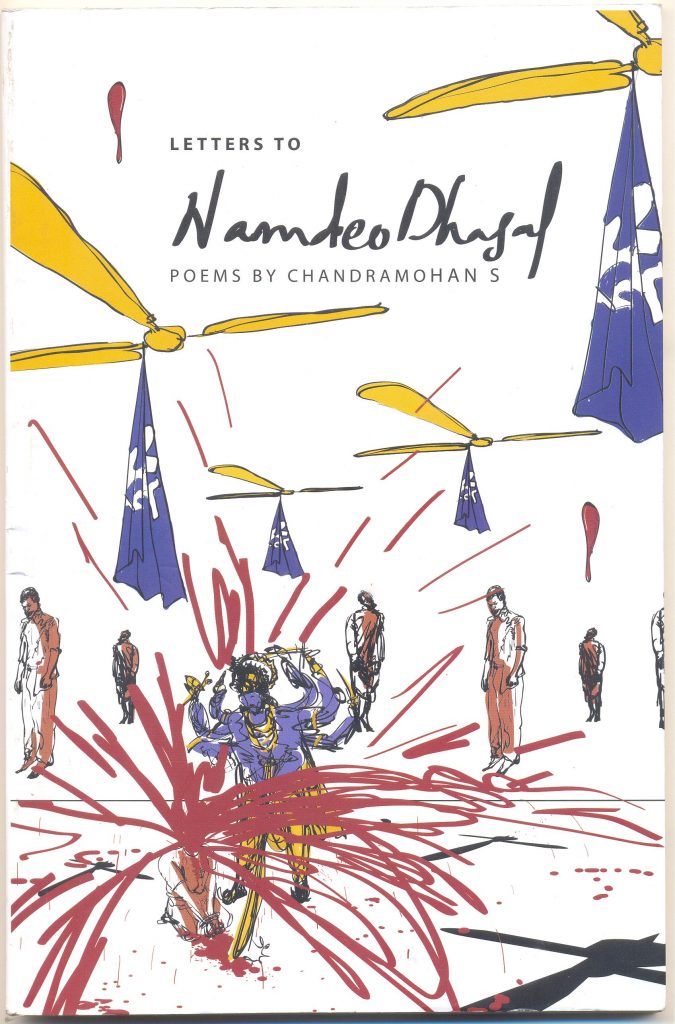‘Letters To Namdeo Dhasal’: A Review
By
Ananya S Guha
In “Letters To Namdeo Dhasal” Chandramohan S strikes brilliant roots with poetry, its efflorescence as a source of instructive power. This is the power to change, correct and to demonstrate that through the poetic power of words, consciousness about injustices that can dominate the heart. The heart is the mind, not intellectual will, nor material gain or supremacy. The human heart is caste less, religion less.
Much of Chandramohan’s poetry is devoted to objectifying poetry as transformational change. The theme of the ‘Poem’ recurs in his poetry as means to show case truth (as he understands it) and nudge out any illusory effects that poetry may have. Poetry is grounded in reality and such reality is brute force, political power, caste and religious hierarchy. Chandramohan dismantles set beliefs regarding the above, so that they should fall like a pack of cards.
“Conform or Perish”.
(Elegy for the Slain Bloggers page 18)
The poet would of course like to live but not to “conform”. Chandramohan’s poetry constantly seeks repudiation of voices of suppression and greed.
Yet, there is the pathos and tragedy of everyday life:
“A child of hope …
Dies six hours later”
(Stillborn ceasefire page 21)
“Heckled poems – dynamite at election rallies”
(Write Poetry page 48)
The point is that the fractiousness of living has consumed the poet’s mind. The total lack of identification with mainstream society borders on nihilism, a voyeuristic urge to display vulgarity.
“History will catch up with you in your rear-view mirror”
(Thirteen ways of looking at A Black Beard page 34)
Chandramohan’s poems are subversive inversions of Indian realities: caste, untouchability or sheer poverty. It is poetry of dislocation in a fixed world of lustful power. He writes in a style which is terse, epigrammatic and witty. His poetry stands out for its ‘newness’ in the culture of social and political poetry where he attacks not only the ‘other’, but also the ‘self’. The self and the other are discrete entities.
This is surely powerful and beautiful poetry grounded in a world of disaffection. But poetry or a poem can wean out such untruths, through sheer word power. The complexity of his poetry arises out of its art. His aesthetic is in word power, jugglery of images, infusions of past, present, myth, history and satire.
‘Letters To Namdeo Dhasal‘, (Desirepaths Publishers, Vadodara: 2016; pp 67 price Rs 150).
Chandramohan Sathyanathan
Chandramohan Sathyanathan is an English poet based in India. His poems reflect the socio-political struggles of the marginalized, the working class and the nomadic outcasts of the World who are victimized and then forgotten as nations clash and wage relentless war.




No Comments Yet!
You can be first to comment this post!